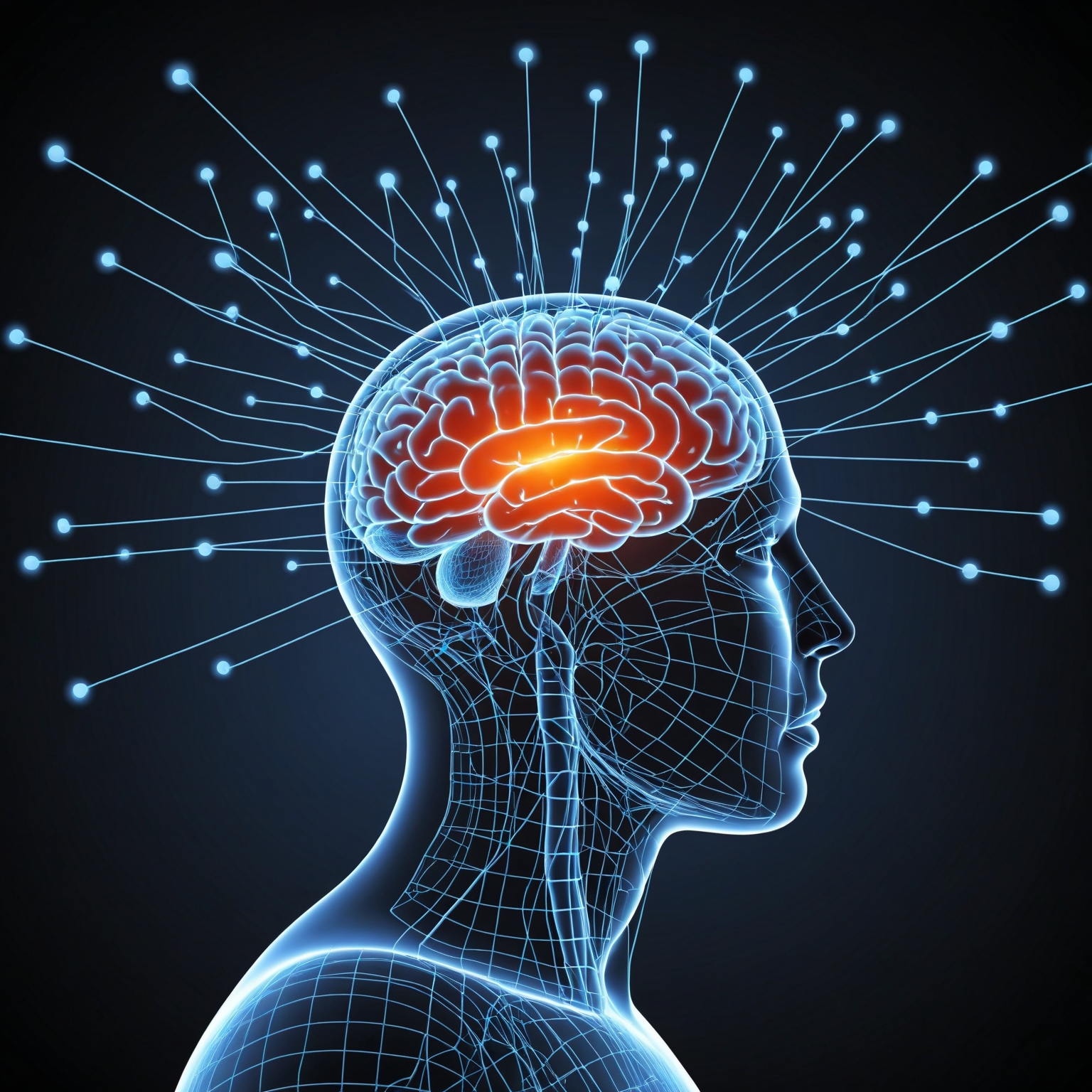Introduction: The notion that the laws governing the physical universe are intertwined with the workings of the human mind has fascinated philosophers, scientists, and thinkers throughout history. From the ancient Greeks to modern-day scholars, the debate over the connection between the laws of matter and the mind has spurred profound philosophical inquiries and scientific investigations. In this blog post, we delve into this intriguing question, exploring different perspectives and shedding light on the complex interplay between the physical world and the realm of consciousness.
- Historical Perspectives:
- The concept of the unity of mind and matter dates back to ancient philosophies, such as those of Aristotle and Plato, who posited a connection between the material world and the realm of ideas.
- In the seventeenth century, the rise of mechanistic views of the universe led to a separation of mind and matter, with the mind often regarded as a separate, non-material entity.
- The emergence of quantum mechanics in the twentieth century challenged traditional views, raising questions about the nature of reality and the role of consciousness in the quantum realm.
- Philosophical Interpretations:
- Idealist philosophies, such as those of George Berkeley and Immanuel Kant, argue that the mind plays a fundamental role in shaping our perception of reality, suggesting that the laws of matter are inextricably linked to mental constructs.
- Materialist philosophies, on the other hand, posit that consciousness arises from the complex interactions of physical processes in the brain, with the mind being an emergent property of matter.
- Scientific Insights:
- Neuroscientific research has revealed the intricate mechanisms underlying cognition, memory, and consciousness, shedding light on how the physical structure and activity of the brain give rise to mental phenomena.
- Studies in psychology and cognitive science have explored the relationship between mental states and physical processes, offering empirical evidence for the interconnectedness of mind and matter.
- Quantum Conundrums:
- Quantum physics presents unique challenges to our understanding of the mind-matter relationship, with phenomena such as wave-particle duality and quantum entanglement suggesting a profound interconnectedness between the observer and the observed.
- The role of consciousness in the collapse of the quantum wave function remains a subject of debate among physicists and philosophers, raising intriguing questions about the nature of reality and the observer’s place within it.
- Emerging Paradigms:
- Some contemporary theories propose a holistic view of reality, in which mind and matter are seen as complementary aspects of a unified whole.
- The integration of insights from neuroscience, psychology, and quantum physics has led to new interdisciplinary approaches that seek to bridge the gap between the physical and mental realms.
- Laws of Matter:
- The laws of matter are fundamental principles that govern the behavior and interactions of physical substances in the universe. These laws are derived from empirical observations and mathematical formulations, providing a framework for understanding the dynamics of matter at various scales.
- Some of the key laws of matter include Newton’s laws of motion, which describe how objects move in response to forces; the laws of thermodynamics, which govern energy transfer and the behavior of systems in equilibrium and non-equilibrium states; and the laws of electromagnetism, which explain the behavior of charged particles and electromagnetic fields.
- These laws are thought to have emerged as a result of the inherent properties of matter and the interactions between particles at the atomic and subatomic levels. For example, the laws of thermodynamics arise from the statistical behavior of large ensembles of particles, while the laws of electromagnetism stem from the interactions between charged particles mediated by electromagnetic fields.
- The laws of matter apply universally, governing the behavior of matter and energy in all physical systems, from the smallest particles to the largest celestial bodies. They dictate the motions of planets in orbit, the behavior of molecules in chemical reactions, and the dynamics of living organisms at the molecular and cellular levels.
- Laws of Mind:
- The laws of mind refer to the principles that govern the operation and functions of consciousness, cognition, and mental processes in living organisms. Unlike the laws of matter, which are grounded in empirical observations of physical phenomena, the laws of mind are more abstract and subjective in nature.
- The origins of the laws of mind are a subject of philosophical debate, with various schools of thought offering different perspectives. Idealist philosophies, for example, posit that the laws of mind are intrinsic to the nature of consciousness itself, while materialist philosophies argue that mental phenomena arise from the physical processes of the brain.
- From a neuroscientific perspective, the laws of mind can be understood as emerging from the complex interactions of neurons, neurotransmitters, and neural networks in the brain. These interactions give rise to cognitive processes such as perception, memory, reasoning, and emotion, which are governed by underlying neural mechanisms.
- The laws of mind apply to all living organisms with nervous systems, including humans and other animals. They influence behavior, decision-making, and social interactions, shaping the way organisms perceive and interact with their environment. While the laws of mind are often studied in the context of psychology and cognitive science, their precise nature and scope remain a topic of ongoing research and philosophical inquiry.
- Formation of Laws of Matter:
- The laws of matter have evolved over time through a combination of empirical observation, theoretical modeling, and experimental validation. Early civilizations made rudimentary observations about the behavior of matter, laying the foundation for more systematic inquiries into its properties and interactions.
- The scientific revolution of the seventeenth century marked a turning point in the study of matter, with groundbreaking discoveries by figures such as Galileo, Newton, and Boyle leading to the formulation of fundamental laws governing motion, gravity, and the behavior of gases.
- The development of modern physics in the nineteenth and twentieth centuries further refined our understanding of matter, with the discovery of electromagnetism, relativity, and quantum mechanics revolutionizing our conception of the physical world.
- Today, the laws of matter are codified in mathematical equations and theoretical frameworks, providing a comprehensive description of the behavior of matter and energy across different scales and domains.
Formation of Laws of Mind:
- The origins of the laws of mind can be traced back to ancient philosophical inquiries into the nature of consciousness, cognition, and mental phenomena. Early philosophers such as Aristotle and Plato speculated about the relationship between the mind and the body, laying the groundwork for future investigations into mental processes.
- The emergence of modern psychology in the late nineteenth century marked a significant milestone in the study of the mind, with pioneers such as Wilhelm Wundt and William James pioneering experimental methods to study mental processes objectively.
- Advances in neuroscience in the twentieth and twenty-first centuries have shed light on the biological basis of mental phenomena, with techniques such as neuroimaging and electrophysiology providing insights into the neural correlates of consciousness, perception, and cognition.
- Today, the laws of mind are studied across multiple disciplines, including psychology, neuroscience, cognitive science, and philosophy of mind. While our understanding of the mind remains incomplete, ongoing research continues to unravel the mysteries of consciousness and mental processes.
Application of Laws of Matter:
- The laws of matter have myriad applications in technology, engineering, and everyday life. They underpin the design and operation of machines, structures, and systems, from airplanes and bridges to computer chips and smartphones.
- In medicine and healthcare, the laws of matter inform our understanding of physiological processes and the development of diagnostic tools, treatments, and therapies. Techniques such as medical imaging, drug delivery, and surgical procedures rely on principles derived from the laws of matter.
- Environmental science and sustainability efforts benefit from our knowledge of the laws of matter, guiding our understanding of natural processes, climate dynamics, and ecosystem behavior. Strategies for mitigating climate change, conserving resources, and protecting biodiversity are informed by principles derived from the laws of matter.
Application of Laws of Mind:
- The laws of mind have practical applications in fields such as education, counseling, and mental healthcare. Understanding the principles of learning, memory, and behavior helps educators design effective teaching strategies and interventions to support student success.
- In clinical psychology and psychiatry, the laws of mind inform the diagnosis, treatment, and management of mental health disorders. Therapeutic approaches such as cognitive-behavioral therapy, mindfulness-based interventions, and pharmacological treatments are grounded in principles derived from the laws of mind.
- The laws of mind also have implications for social policy, law, and governance, shaping our understanding of human behavior, decision-making, and ethical considerations. Policies related to healthcare, education, criminal justice, and social welfare are informed by insights from psychology, neuroscience, and related disciplines.
Conclusion: The question of whether the laws of matter are the laws of mind remains a topic of philosophical speculation and scientific inquiry. While our understanding of the mind-matter relationship continues to evolve, the exploration of this fundamental question invites us to contemplate the nature of reality, consciousness, and the interconnectedness of all things. Whether the laws of matter are ultimately the laws of mind may ultimately depend on our perspective, our philosophical framework, and the mysteries of the universe that are yet to be unveiled.






